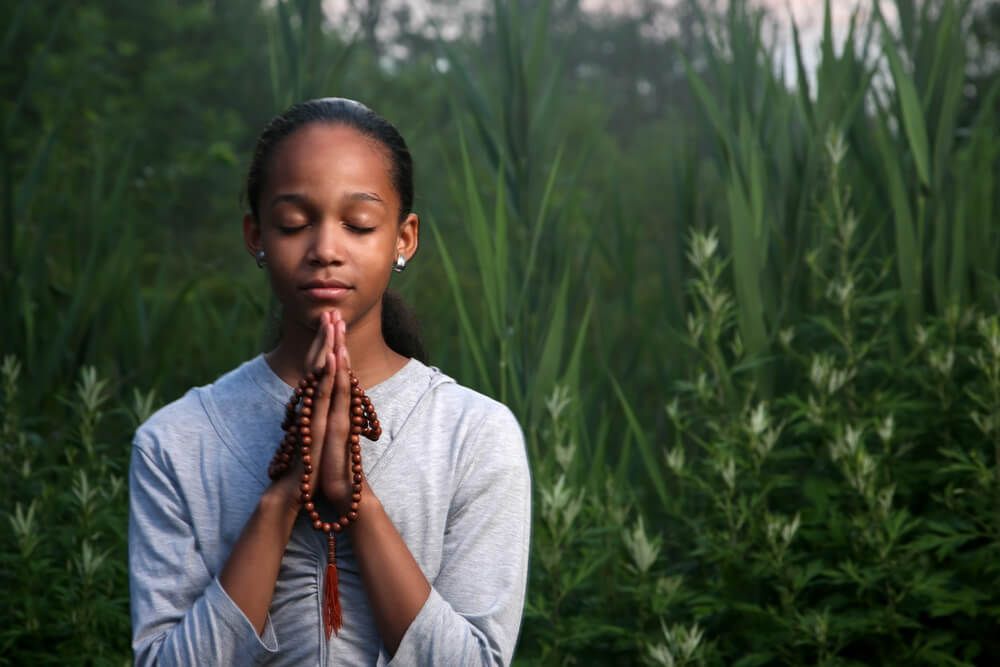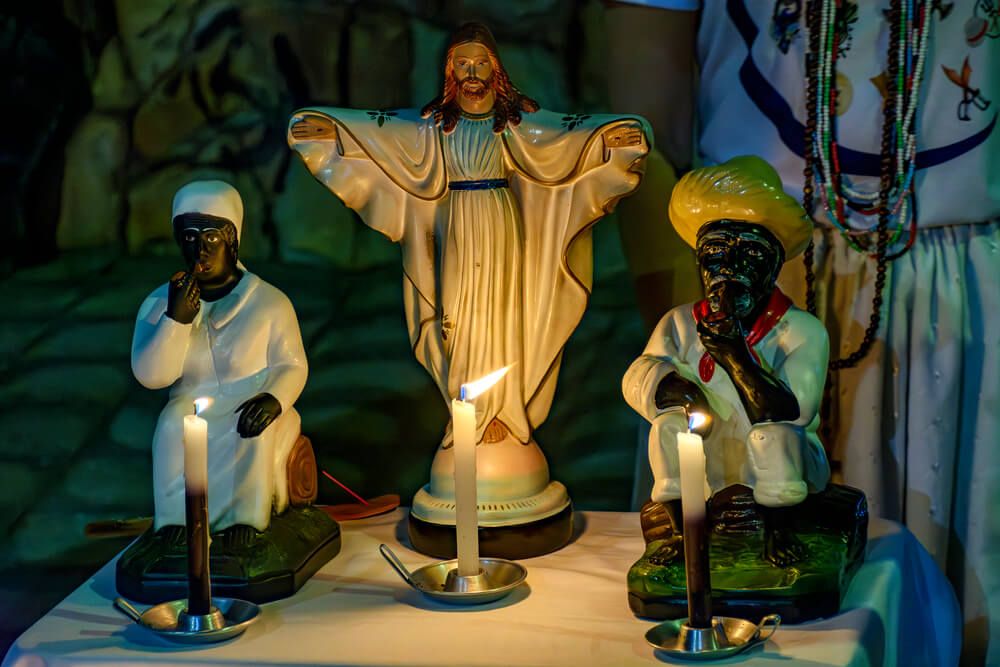Often, spiritual traditions that have shaped cultures for generations are overshadowed by more widely known faiths, yet each religion offers valuable insights to learn from. For example, understanding how African traditional religion is different from Christianity provides unique perspectives on spirituality, community, and daily life. In an increasingly interconnected world, recognizing and valuing these diverse spiritual practices can foster mutual respect, cultural sensitivity, and deeper human connections.
How Does African Traditional Religion Compare to Christianity?

African traditional religion and Christianity both emphasize moral conduct, community support, and belief in a higher power. Followers of each religion may seek spiritual guidance, pray or meditate, and participate in sacred rituals. These practices, though different in form, can each offer a meaningful guide to divinity for those seeking spiritual connection.
To better appreciate the distinct characteristics of these religions, you must first explore the essence of each tradition separately.
What Is African Traditional Religion?
African traditional religion refers to the Indigenous spiritual beliefs and practices native to the African continent, passed down through generations by word of mouth, ritual, and communal life. Unlike organized religions with a central text or founder, African faith systems are decentralized and vary greatly among ethnic groups.
Importantly, African traditional religions evolve with the people who practice them, adapting over time while maintaining core values like respect for elders, communal responsibility, and harmony with nature.
What Is Christianity?
Christianity is a monotheistic religion centered on the life, teachings, death, and resurrection of Jesus Christ. Rooted in the Bible as its sacred text, Christianity emphasizes personal faith, individual salvation through Jesus, and ethical living guided by scriptural teachings. It has organized structures, rituals, and doctrines, and it promotes fellowship within a community of believers who share worship, prayer, and service.
What Makes African Traditional Religion Unique?

African traditional religion is uniquely characterized by its oral transmission, deep integration with ancestral reverence, and strong connection to specific lands and natural environments. Unlike Christianity, which typically emphasizes individual salvation and codified scripture, African traditional belief systems focus on collective well-being and lived experience.
Oral Tradition Over Written Text
African traditional religions rely on myths, proverbs, songs, and rituals passed down through generations. There's no single holy book, and spiritual knowledge is preserved by elders and spiritual leaders. This oral transmission allows for a more flexible, context-based understanding of spiritual truths. In contrast, Christianity is rooted in the written Bible, which serves as a fixed reference for teachings and doctrine.
Reverence for Ancestry
Ancestors are believed to play an ongoing role in the lives of the living. Far from being forgotten, the deceased are honored, consulted, and even petitioned for help. Rituals to honor ancestors are often held at important milestones like births, marriages, and deaths. This is a core part of worship, contrasting sharply with Christianity's singular focus on God, Jesus Christ, and the Holy Spirit.
Holistic Spirituality
While Christianity often separates the sacred from the secular, spirituality isn't compartmentalized in African traditional religion. Instead, it's integrated into every aspect of life.
Farming, marriage, childbirth, and even sickness are seen through a spiritual lens. Illness, for example, may be viewed not only as a medical issue but also as a spiritual imbalance or ancestral displeasure.
Multiple Deities and Spirits
While many African traditional religions acknowledge a supreme creator, they also recognize a pantheon of lesser deities, nature spirits, and ancestral beings. Certain spirits might be responsible for fertility, rain, or protection, and rituals are performed to honor them accordingly.
Christianity, on the other hand, is monotheistic, centered around one God. While saints and angels exist in Christian theology, they do not occupy the same relational or functional role.
Connection to Land and Nature
Another aspect that sets African traditional religion apart is its spiritual connection to the land. Sacred trees, rivers, mountains, and groves are not just physical locations but are imbued with spiritual significance. Environmental stewardship is often considered a religious duty.
Christianity acknowledges the beauty of nature as God's creation but typically does not assign spiritual personhood or divine presence to natural objects in the same way.
Have There Been Conflicts Between African Traditional Religion and Christianity?

There have been significant conflicts between African traditional religion and Christianity, especially during the colonial and missionary eras. These conflicts often arose from differing worldviews, forced conversions, and the marginalization of indigenous practices. The introduction of Christianity to Africa brought not just a new faith but also a new cultural framework that often clashed with local customs.
Colonial Influence and Religious Supremacy
European colonial powers often partnered with Christian missionaries who viewed African traditional beliefs as pagan or backward. This led to efforts to suppress indigenous religions through legislation, education, and social pressure. Religious conversion was sometimes used as a tool of control, with Christian identity becoming associated with modernity and political favor.
Cultural Displacement
Conversion to Christianity sometimes required abandoning traditional names, clothing, rituals, and languages. As a result, many African communities lost touch with their cultural roots. Traditional ceremonies were banned or rebranded, and spiritual leaders were replaced by Christian clergy, shifting the spiritual authority away from local communities.
Religious Integration and Resistance
Many African communities blended aspects of Christianity with their traditional beliefs. This integration allowed people to maintain spiritual continuity while adapting to new religious frameworks. Notable examples include voodoo and hoodoo, two distinct spiritual traditions that emerged within the African diaspora.
Voodoo, primarily developed in Haiti, combined West African religious beliefs with Catholic rituals into a structured religion. In contrast, hoodoo evolved in the American South as a folk-magic tradition, drawing on African spirituality, Indigenous knowledge, and Christian symbolism.
In places like Nigeria, South Africa, and Ghana, you can also find Christian denominations that incorporate drumming, dancing, and even ancestor reverence within Christian worship services. These forms of integration reflect the resilience of African spiritual identity and its ability to adapt within new religious environments.
Discover How African Religion Differs From Christianity To Strengthen Your Ministry
Understanding how African traditional religion differs from Christianity helps us appreciate the diverse ways people experience faith and community. These insights are especially valuable for ministers, spiritual leaders, and anyone interested in interfaith dialogue or multicultural ceremonies.
At the Universal Life Church, we celebrate all paths to the divine. Whether you're exploring global religions, officiating a wedding that blends cultural traditions, or seeking spiritual growth, we’re here to support you. We believe that honoring all belief systems enriches our shared human experience. Get ordained to expand your ministry and learn more about how you can honor diverse faiths.



